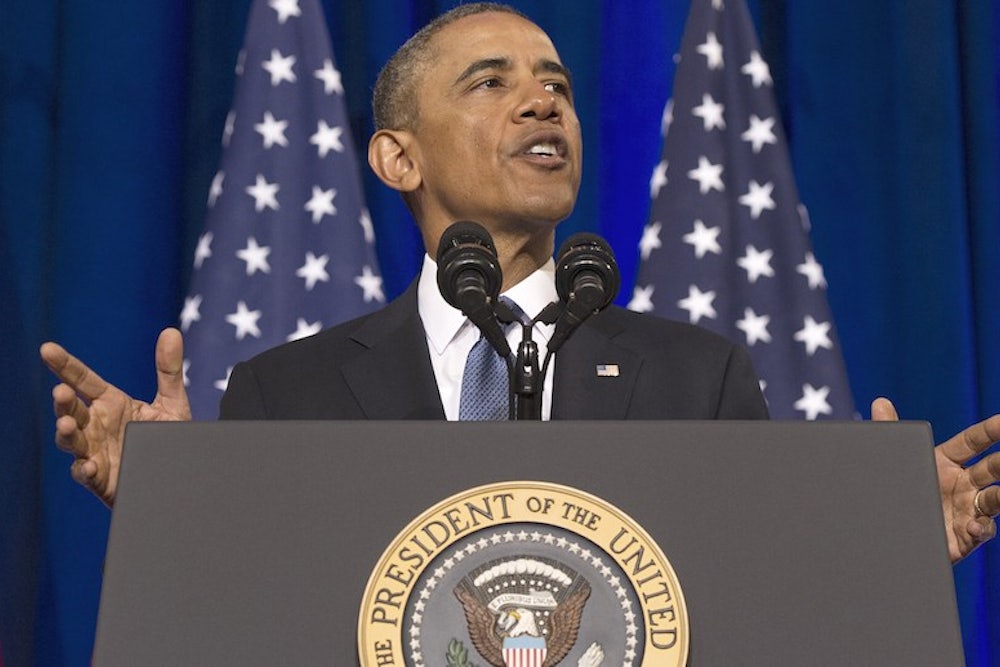On Wednesday, the Wall Street Journal editorial board found an unusual way to criticize Barack Obama for his new limits on carbon emissions: the action, the paper declared, showed that he was too principled and insufficiently attuned to short-term political benefits.
One consequence of President Obama's new anticarbon energy rule will be to create what economists call "stranded assets," in this case still useful fossil-fuel plants that are suddenly made noneconomic. This is part of the plan. But if this grand design ultimately fails, it will be because Mr. Obama is also creating stranded Democrats from energy-producing states.
This will have far-reaching implications, especially for Democrats in energy-rich states and especially this year. Twenty years ago, Bill Clinton would never have dreamed of rolling out this EPA regulation five months before an election. Mr. Obama is willing to risk it now because his second term is winding down and he wants to put in place as a much of a legacy as he can...
As Jonathan Chait has noted, it’s rich indeed for the Journal, which savaged Bill Clinton to such an extent that it collected its editorials attacking him into a five-volume collector set, to now be praising him in hindsight for being more politically expedient and partisan-minded than his Democratic successor. But it gets better than that. Today—just one day later—the Journal completely flipped its critique of Obama. His problem, you see, is that he is too fixated on domestic politics, as his handling of Bowe Bergdahl’s release shows:
President Obama's decision to swap five Taliban killers for the return of Sgt. Bowe Bergdahl has morphed from a debatable policy decision into the Administration's latest political fiasco. There's a lesson here about the risks of spin and narrow political calculation, especially in foreign policy when American lives are stake…
The larger problem is that Mr. Obama treats all of foreign policy as if it's merely part of his domestic political calculus. It's all too easy to imagine him figuring that if he announced the withdrawal of all troops from Afghanistan by 2016 as he did last week, he could then more easily sell the prisoner swap, which would then help empty Guantanamo so he could fulfill that campaign promise too. Is it too much to ask that, in his final two and half years in office, the President act as if more is at stake in foreign policy than his domestic approval rating?
I read the Journal’s editorials every day, and have for years. I find them a handy way to track conservative opinion—hard-edged, no doubt, but generally also well-wrought (better-wrought, it must be admitted, than their counterparts at the New York Times.) But really, the Journal is not doing its regular readers a service here. We’re awfully confused: is Obama recklessly disregarding domestic politics to cement his legacy with grand edicts, or making hasty decisions purely for domestic political gain? Please make up your mind.
